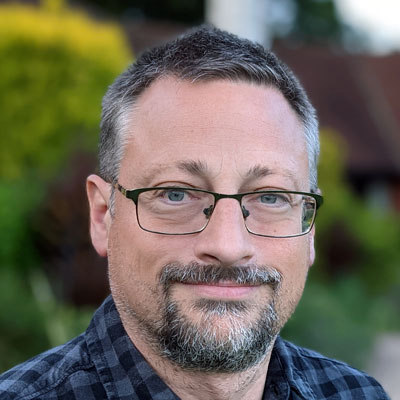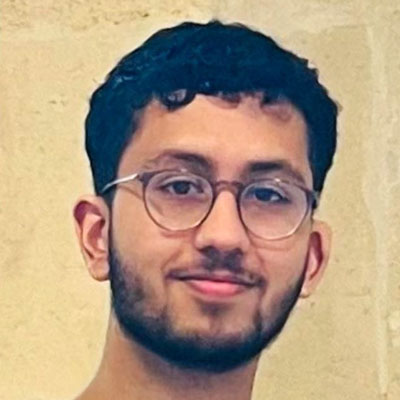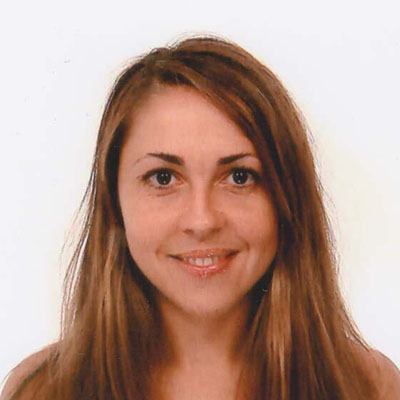Paul Bays — Principal Investigator

After studying Experimental Psychology as part of Natural Sciences at the University of Cambridge, Paul joined Daniel Wolpert’s research group where he conducted experiments in motor learning and sensorimotor prediction. On obtaining his PhD in 2006, he took up a post-doctoral position in Masud Husain's group at the UCL Institute of Cognitive Neuroscience, where he investigated visual memory, eye movements and the spatial neglect syndrome. In 2010 he joined the UCL Institute of Neurology as a Wellcome-Beit Prize Fellow. In 2013–15, Paul was a Visiting Scholar at the Institute of Cognitive & Brain Sciences, UC Berkeley. In 2015 he returned to the University of Cambridge as a Wellcome Trust Senior Research Fellow. In 2022, he was made Professor of Computation and Cognition.
Email: pmb20@cam.ac.uk | Google Scholar
Chris Jungerius

Chris completed his PhD in Cognitive Neuroscience at the University of Amsterdam under the supervision of Prof. Dr. Heleen Slagter. His doctoral research investigated how contextual volatility influences visual attention and statistical learning. He joined the lab as a Research Associate in 2025, working on a joint project with Máté Lengyel (Dept of Engineering) that uses deep neural networks to study how working memory supports causal inference in everyday visual environments.
Email: cj527@cam.ac.uk
Stella Wernicke

Stella studied Psychology, Computational Linguistics, Sinology, and Educational Studies at Heidelberg University in Germany. Concurrently, she worked as a research assistant in Clinical Psychology at the Technical University of Munich. Following a research internship at the Cognitive Neuroscience Institute at Bangor University, Stella joined the lab in 2023, initially as an MPhil student of Biological Science (Psychology). Her dissertation examined how working memory capacity is reallocated over sequences of stimuli and how this process is influenced by salience and relevance. She was subsequently awarded a PhD place to investigate spatial working memory in different reference frames, and their relevance to neurodivergent and patient populations.
Email: saiw2@cam.ac.uk
Adam Triabhall

Adam obtained an MA in Psychology with a specialism in Neuroscience from the University of Glasgow. He joined the lab in 2021 as an MPhil student of Biological Science (Psychology) to research the computational mechanisms of working memory retrieval using modelling and online experiments. As a part-time Research Assistant, he also worked on the development of Extended Reality (XR) experiments. In 2023, he was awarded the MPhil and began his PhD training with funding from the BBSRC.
Email: ap2291@cam.ac.uk
Daksh Mehta

Daksh is a medical student at King’s College London; he held a funded research internship at the Institute of Psychiatry, Psychology & Neuroscience under the supervision of Dr Andrew Meso, focused on developing a multiscale representational model of the visual perception of symmetry. He joined the lab in 2025 as an MPhil candidate in Biological Sciences (Psychology) to investigate how attentional resources are allocated under the Bayesian efficient coding framework.
Email: dm2094@cam.ac.uk
Julie de Falco

After completing a BSc in Biology at the University of Salerno, Julie attended Neuroscience lectures at Aix-Marseille University and obtained her MSc in Neurobiology from the University of Pavia in 2023. For her master's thesis, she worked on reconstructing a full-scale network model of the mouse cerebellar flocculus. She joined the lab in March 2024 for a post-graduate Erasmus+ traineeship, where she is using fixational eye movements as a physiological marker to study the dynamics of visual working memory retrieval.
Email: jd2091@cam.ac.uk
Former members

Ivan Tomić conducted his doctoral studies in Psychology at the University of Zagreb in Croatia. In his PhD project he investigated the consequences of processing distractors of different strengths on representations in visual working memory. He was awarded funding by the British Scholarship Trust to visit the Bays lab during 2016/2017, in order to deepen his understanding of working memory. He returned to the lab in 2019 as a Research Associate to study visual perception and memory, in particular how sensory representations enter working memory. In 2021 he returned to the University of Zagreb where he is now a tenured Assistant Professor. He continues to work closely with the lab, using artificial neural networks and computational models to study visual memory.

Ece Bilgic joined the lab for her Master's project, using behavioural experiments and efficient coding theory to investigate the prioritization of visual stimuli. In 2026, she moved to the University of Oxford to start a DPhil with Hannah Smithson on gloss perception. Her research examines how physical features related to gloss are integrated into coherent perceptual judgements, and how observers interact with glossy objects.

Xiaolu Wang obtained her Master's degree in Physics (Optics) and is currently pursuing her PhD in Biomedical Engineering at Sun Yat-sen University in China. During her PhD program, she has investigated the functional role of cerebral cortex in regulating eye-hand coordination using fNIRS. She is also interested in the development of virtual reality rehabilitation techniques. In 2023, she joined the lab as a visiting PhD student, working on neural population coding models of metacognitive sensitivity.

Zahara Gironés studied Theoretical Physics at the Autonomous University of Madrid and completed her Ph.D. at the University of Valencia, working on models of modified gravity. Afterwards she conducted postdoctoral research in computational neuroscience: in 2015, she joined the Destexhe Lab in Paris where she studied brain state changes by developing biophysically realistic models of thalamocortical networks. Afterwards, in the University of Oregon, she studied how human memory segments our continuous experience by analyzing fMRI data. She worked in the lab as a Research Associate from 2020 to 2022, conducting computational modeling of visual perception and memory using neurally inspired models based on principles of efficient coding and Bayesian inference. The project was a collaboration with Máté Lengyel from the Dept of Engineering, University of Cambridge.

Rodrigo Raimundo studied Natural Sciences at the University of Cambridge, where he first joined the Bays lab in 2021 as a final-year project student, investigating the factors that drive allocation of working memory resources towards different visual items. After graduating, he stayed on in the lab as a Research Assistant from late 2022 to early 2023, where he worked on a project comparing working memory for dynamic and static stimuli. Rodrigo is currently studying for a PhD with Janneke Jehee at the Donders Institute in the Netherlands looking at the neural mechanisms linking sensory uncertainty with decision confidence.

Dagmar Adamcova completed her MSc in Psychology at Masaryk University. During an internship at the University of Sheffield, she investigated the relationship between skill acquisition and motivation using large observational video game data. Dagmar worked in the lab as a Research Assistant in 2021 studying visual working memory using a combination of lab-based and online experiments.

Sebastian Schneegans studied Computer Science at the University of Tübingen and obtained his PhD in the group of Gregor Schöner at the University of Bochum in Germany. In his PhD project, he addressed questions of visuo-spatial perception, memory, and cognition by designing computational models within the framework of dynamic field theory. He was a Research Associate in the lab from 2015 to 2022, studying the structure and neurocomputational basis of feature binding in visual working memory.

Jessica McMaster obtained a BSc in Psychology at the University of Lincoln and an MSc in Cognitive Neuroscience at the University of York. During her MSc she used fMRI to study age-related differences in the neural substrates of distraction filtering during working memory encoding and delay. She joined the lab as a Research Assistant in 2019, running experiments and simulations to investigate the basis of binding errors in visual working memory. She left in 2020 to take up a PhD place funded by the ESRC Cambridge Doctoral Training Partnership to investigate factors underlying resilience to age-related cognitive decline.

Garry Kong completed his PhD at the University of Sydney, working with Erik Van der Burg and David Alais to study what genetic algorithms could reveal about visual search behaviour. In 2017, he joined Daryl Fougnie's lab at New York University Abu Dhabi, where they investigated interactions between working memory and attention. He worked in the lab as a Research Associate from 2019, investigating the brain's ability to combine visual information across gaze fixations to infer the cause of transsaccadic changes. He left at the end of 2020 for a tenure-track position in Japan, and in 2023 joined the faculty of Hiroshima University as an Associate Professor.

Thomas Fontaine completed his Foundation degree in Mathematics at Sorbonne University and his BSc in Fundamental Physics at the University of Paris-Sud. Still studying Physics at the Magistère de Physique Fondamentale d'Orsay, he specialized in Theoretical Neuroscience at the Ecole Normale Supérieure, where he completed his BSc thesis on predictive inference. He joined the lab in 2019 to conduct his MSc thesis, addressing a population coding basis for integration of visual information across eye movements. The project was a collaboration with Máté Lengyel from the Dept of Engineering, University of Cambridge.

Lisa Kröll obtained a BA in psychology and an MA in neuro-cognitive psychology at Ludwig-Maximilians-University Munich. She joined the lab as a visiting student in 2018 to conduct her Master's thesis on the role of visual working memory in saccadic integration. She went on to study for a PhD under the supervision of Martin Rolfs at the Humboldt University in Berlin.

Rob Taylor studied psychology at Massey University in New Zealand, where he obtained his BA, MA, and PhD. Rob’s PhD investigated how trial-by-trial feedback influenced the precision of categorization judgments by modelling performance using a dynamic signal detection framework. During the final year of his PhD Rob moved to Sydney where he began work with Chris Donkin at the University of New South Wales and addressed the nature of capacity limits in visual working memory. He worked in the lab as a Research Associate from early 2017 to late 2018, exploring neurocomputational models of working memory. He then returned to Australia to take up a position at the University of Newcastle.

David Aagten-Murphy studied Psychology and Neuroscience at the University of Sydney in Australia, working with David Alais on multisensory processing. He then moved to Italy to pursue a PhD project with David Burr investigating our perception of spatial, temporal and numerical magnitudes. In collaboration with Liz Pellicano this research was applied to investigating perceptual differences in children with Autism. After completing his PhD he then moved to Munich to investigate multisensory processing across eye-movements with Heiner Deubel. David worked in the lab from 2016 to 2018, studying the integration of visual information across gaze shifts and how multiple coordinate systems contribute to spatial working memory.

Viljami Salmela obtained his PhD at the University of Helsinki in Finland, where he studied perception of surface brightness. Viljami went on to study precision of visual working memory for contour shapes (with Jussi Saarinen), used fMRI to study representations of shapes and surfaces in the visual cortex (with Simo Vanni at Aalto University) and investigated brain networks related to attentional control and working memory (with Kimmo Alho). In 2016, Viljami was awarded an Academy of Finland Research Fellow position and he started his own research group to study face perception and memory. He joined the Bays lab as a visiting scholar during 2018 to investigate memory precision of facial expressions.

Will Harrison completed his PhD in Psychology at The University of Queensland in Australia in 2013. He then moved to Boston for his first postdoc with Peter Bex to investigate visual crowding at Schepens Eye Research Institute and Northeastern University. He joined the Bays lab in early 2017 to investigate the relationship between eye movements, crowding, and working memory. In 2018 he left for the Queensland Brain Institute as an Early Career Fellow of the National Health and Medical Research Council of Australia, and was subsequently awarded a Discovery Early Career Researcher Award (DECRA) from the Australian Research Council.

Ben Dowding graduated with an MPhys degree in Physics from the University of Southampton, and subsequently worked in research and development for various companies, ranging from radiation detection to inkjet printing. He joined the lab as a Research Technician / Programmer to develop software for use in visual memory and decision-making experiments. He left in 2016 to pursue opportunities in industry.

Leonie Oostwoud Wijdenes obtained a BSc and MSc degree in Human Movement Sciences at VU University Amsterdam. Her PhD project was in Jeroen Smeets' research group, where she studied the characteristics of online movement corrections. She joined the lab as a post-doc in 2013 to investigate the influence of working memory and resource limits on planning and execution of movement. In 2015, she joined Pieter Medendorp's lab at the Donders Institute in the Netherlands, where she became Assistant Professor in 2021.

Louise Marshall studied Physiological Sciences at Oxford University. Specializing in Neuroscience, she became interested in the experimental methodologies used to investigate sensorimotor integration while conducting a dissertation project with Professor John Stein. Working in the lab as a research assistant, she was responsible for procuring and testing new equipment as well as conducting experiments, including an investigation of attentional control over allocation of visual memory. She joined UCL's PhD programme in Clinical Neurosciences in 2012.

Muy-Cheng Peich studied Biology, specializing in Neuroscience, in the Magistère of Biology at the École Normale Supérieure de la rue d’Ulm and entered the École Normale Supérieure de Cachan in 2010. During an internship at UCL she investigated visual working memory and binding in older adults and individuals with Alzheimer’s disease. The project was a collaboration with Masud Husain at the University of Oxford.